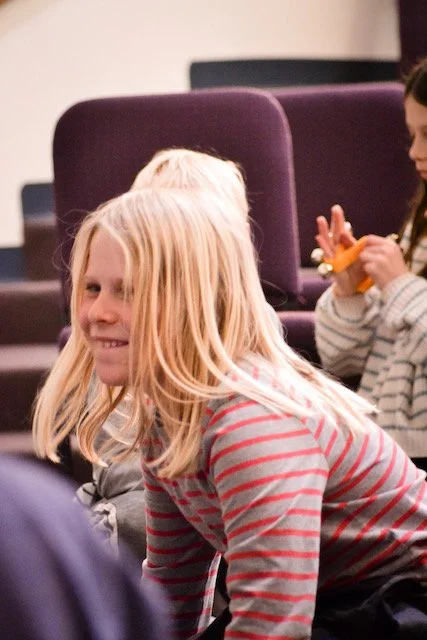You know, learn things
Truth be told, my students would tell me everything I need to know if I would only listen. Which reminds me, once again, why it is no use trying to fool any of them. They are all too smart, wise beyond their years.
Take this:
“So, what’s new?” I asked Jason as he sauntered into his lesson.
"Amy," he said. He was ready for my question. "We have a new music teacher and he is really bad."
"Now, Jason. Give the teacher a chance. What's the problem?"
"Well," he began, "Yesterday, he spent half the class talking about Michigan. He is going to be no good."
I wanted to support my fellow music teacher, but talking about Michigan to a group of fourth graders isn’t likely to pave the way for stellar music instruction. Still, I stalled. "If it was going to be a good music class what would you do?" I asked.
"You know. Learn stuff. Play instruments," Jason answered.
He was right, of course. They always are.
Over the years, I have taught kids so smart and musical and happy that somehow I knew that all I needed to do was to stand out of the way and watch them fly. One brilliant child I once taught joyfully raced through her entire assignment of flawlessly executed sonatinas and perfectly fingered melodic minor scales every lesson and then every single week turned to me and asked, “Now, Amy, do we have time for jokes?”
Recently, Jonah was playing a little primer piece called “The Joke.” I asked him if he knew any jokes. Without missing a beat he answered, “No. But I just read a funny story from Highlights magazine. Do you want to hear it?” I laughed, charmed. “Sure.”
For every joke I encourage, there are at least ten thousand others I extinguish, impatiently. It is a difficult practice to stop talking and to start listening, to allow, in spite of all our education and pedagogy, that we might not have all the answers, much less the punch line to all the jokes. Even though I know that my students will tell me everything I need to know about how to teach them (“You know. Learn stuff.”), most days I still don’t wait long enough to give them the lead. Instead of following, I jump in with my agenda and my priorities and charge right over precious opportunities before me. Always the big sister, I call my siblings with advice, even though they haven’t wanted or asked for it for years. I roar through a tender moment with my husband and miss the chance of connection entirely. The sound of the bell is outside calling me to stop and listen, but too often I am not paying attention.
Thinking about Jason and his music teacher, I am reminded of the scene in Hamilton where a friendly peer offers this advice to the well-meaning, but overly assertive, Hamilton: Talk less. Smile more.
This too is good advice, and worth taking to heart as the school year—with all its fresh new beginnings—lurches forward. I have a heavier teaching load this fall than I have ever carried: 33 students. And no, this wasn’t a grand strategic move. It just happened. As we find our way into this phase of the pandemic, everyone’s schedules are starting not just fill up, but to crash, our operating systems overloaded. This is also not strategic, I suspect. It’s just happening. Just the other night Matt and I were talking about our upcoming weekends, or rather the lack thereof. “You know what I wish?” I said. “I wish coming out of lockdown, we would have collectively agreed that no one could schedule anything one night a week. Like Monday nights. That everyone on the planet would just know: Monday nights are always free. You know, like Sabbath keeping.”
“I’m afraid that ship has sailed,” said Matt.
It’d probably serve us all to embrace both Hamilton and Jason as we move forward into the madness: Talk less. Smile more.
And you know, learn stuff.
